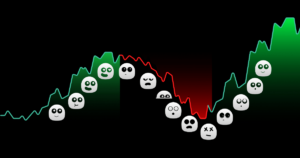Seeking to refine your trading proficiencies and elevate your earnings? The answer may lie within a Prop Firm Challenge. Proprietary trading firms extend unparalleled opportunities for traders to hone their skills, acquire significant capital, and glean wisdom from the foremost experts in the sector. But, which strategies and tips can propel one to success in this fiercely competitive arena?
In-depth exploration of the proprietary trading domain will be undertaken in this discourse, offering pivotal tips and insights for flourishing within a Prop Firm Challenge. We will meticulously dissect the advantages of engaging in such challenges, the process of adeptly navigating the prerequisites, and the methodology for selecting the optimum prop firm. Additionally, the exposition will illuminate popular proprietary trading strategies designed to enhance your trading acumen.
Key Takeaways:
- Participating in a Prop Firm Challenge allows traders to gain valuable experience and access substantial trading capital.
- Proprietary firms often introduce profit-sharing arrangements that align traders’ interests with the firm’s success.
- Traders in prop trading firms have the opportunity to learn from expert traders and network with industry professionals.
- Successful participation in a Prop Firm Challenge can lead to increased profit potential and career opportunities in finance.
- Choosing the right prop firm challenge and implementing effective trading strategies are crucial for success in prop trading.
Benefits of Participating in a Prop Firm Challenge
Engagement in Prop Firm Challenges offers traders myriad advantages pivotal for their advancement and triumph within the trading realm. Irrespective of one’s experience level, these challenges present a distinguished avenue to augment skills and escalate profit capabilities.
Improving Trading Abilities and Gaining Experience
These challenges afford traders the opportunity to refine their trading acumen through engagement in real-time market scenarios. Such practical immersion facilitates a deeper comprehension of market dynamics, trading strategies, and risk management methodologies.
Prop trading entities also extend educational resources and mentorship, allowing traders to assimilate knowledge from seasoned professionals. This guidance expedites the educational journey, inculcating novel perspectives and strategies in trading.
Access to Substantial Trading Capital
Conquering a prop firm challenge unlocks access to significant capital, thus expanding a trader’s capital base for trading ventures. Such financial empowerment enables the pursuit of more substantial trading positions, thereby elevating potential profit margins. It also affords traders the latitude to diversify their portfolio and seize a broader array of trading prospects.
Profit-Sharing Arrangements
Prop firms frequently employ profit-sharing models that bind a trader’s success to the firm’s prosperity, fostering a symbiotic alliance. This ensures that a trader’s contributions towards the firm’s profitability are rewarded, meanwhile imparting insights into the operational dynamics of a successful trading entity.
Supportive Community and Networking Opportunities
Integration into a prop firm introduces traders to a collaborative community of individuals with a shared trading zeal. This stimulates an exchange of knowledge and support, propelling continual professional development.
Moreover, these challenges serve as conduits for networking within the trading sphere, facilitating interactions with a gamut of professionals. These engagements may unveil new vocational paths, collaborative ventures, and an enhanced professional network.
Effective Risk Management and Reduced Personal Liability
Participation in prop firm challenges underscores the importance of astute risk management. Traders hone their ability to discern risk-reward ratios, apply appropriate position sizing, and execute strategic risk mitigations. Mastery of these skills acts as a bulwark for trading capital and deters substantial losses.
Furthermore, trading under the auspices of a prop firm alleviates personal financial exposure. Trading with firm-derived capital disperses the risk, safeguarding personal assets from severe trading losses.
Unlocking Career Opportunities in Trading
Achievement in a prop firm challenge may usher unparalleled career prospects within the trading sector. Exhibiting prowess, discipline, and resilience through these challenges enhances a trader’s allure to prospective employers or expansion-minded trading firms. Success therein often correlates with lucrative trading roles and ascended career trajectories within finance.
| Benefits of Participating in a Prop Firm Challenge |
|---|
| Improving trading abilities and gaining invaluable experience |
| Access to substantial trading capital |
| Profit-sharing arrangements |
| Supportive community and networking opportunities |
| Effective risk management and reduced personal liability |
| Unlocking career opportunities in the trading industry |
Conditions in a Prop Firm Challenge
Prior to participating in a Prop Firm Challenge, traders are mandated to comprehend the extensive conditions and rules that dictate their involvement. These rules not only sculpt the framework for the endeavor but furthermore guarantee a competitive and equitable milieu. Key considerations include:
Drawdown Limits
Within the prop firm challenge parameters, the stipulation of drawdown limits is paramount. Such limits delineate the ceiling of permissible losses for those engaged. These constraints are instrumental in safeguarding the capital of traders whilst curtailing imprudent risk engagements.
Algorithmic Trading Rules
Algorithmic trading within proprietary firms is governed by meticulous guidelines to ensure fairness and uphold a balanced competitive landscape. These regulations foster transparency and integrity, thereby affording every trader an unbiased opportunity to prosper through the challenge.
Winning Criteria
Success in a prop firm challenge is contingent upon achieving the performance benchmarks established by the entity. These benchmarks may encompass criteria such as minimum profit requisites, advantageous risk-to-reward computations, among other quantifiable metrics. Fulfillment of these criteria underscores a trader’s competency in accruing steady gains whilst adeptly managing risks.
Additional Challenge Rules
Beyond drawdown limits and algorithmic stipulations, challenges presented by prop firms impose extra conditions for compliance. Such regulations, varying across entities, might entail trading instrument limitations, specified trading timetables, or mandates on position proportions.
Mastering risk management strategies and compliance with position sizing parameters are indispensable within prop trading arenas. These practices aid traders in loss mitigation, thereby bolstering long-term fiscal success.
Further to financial stewardship in prop challenges, traders might be obliged to capitalize their trading portfolios and adhere to performance-based scaling models. This highlights the paramountcy of disciplined trading regimes and astute risk management.
Accurate understanding and adherence to a prop firm challenge’s stipulations can pivot a trader towards triumph and augment their likelihood of challenge completion. Such conditions fabricate a just and competitive stage for all challengers.
Tips for Passing a Prop Firm Trading Challenge
Engagement in a Prop Firm Challenge necessitates a profound comprehension of its terms and conditions, pivotal for triumph. Adhering to the forthwith advice, in conjunction with a disciplined trading methodology, augments the probability of surmounting the challenge, thereby propelling your professional trajectory within the prop trading domain.
- Consistency is Key: Adherence to your trading stratagem, eschewing emotional or precipitate decisions, is imperative. Such steadfast execution of your trading blueprint underpins discipline, facilitating unwavering focus towards the attainment of strategic goals.
- Start Small: For novices or those encumbered by uncertainty within the prop trading arena, initiating with an undemanding challenge is advisable. This rudimentary approach not only accrues invaluable experience but also bolsters confidence and hones trading acumen.
- Practice Patience: In the realm of prop trading, patience emerges as a quintessential virtue. Frenetic actions often precipitate erroneous judgments and consequential financial setbacks. Diligent analysis of market dynamics, discerning opportune moments, and awaiting idyllic trading configurations are recommended practices.
- Learn and Improve: Surmounting a prop firm challenge signifies merely the inception of your vocational journey. The incessant pursuit of knowledge, coupled with the commitment to enhancement, constitutes the cornerstone of enduring success in prop trading. It is incumbent upon the trader to remain au courant with prevailing market trends, emulate the endeavors of adept traders, and tirelessly seek intellectual enrichment to augment trading competency.
Incrementing your likelihood of passing a prop firm trading challenge is achievable through adherence to these guidelines coupled with disciplined trading endeavors. It is pivotal to recognize that the culmination of the challenge heralds the advent of amplified prospects. A dedication to ceaseless learning and evolution substantiates the foundation for a prosperous career within prop trading.
How to Choose the Right Prop Firm Challenge
Identifying the optimal proprietary trading firm challenge is pivotal for success in this intricate field. Traders must meticulously evaluate several aspects to ensure the selected firm complements their distinctive trading methodology, objectives, and career aspirations. This evaluation is fundamental for fostering a conducive, productive environment in proprietary trading.
Compatibility with Trading Style and Goals
It is imperative for traders to ascertain whether a prop firm’s challenge harmonizes with their individual trading style. As prop firms may specialize in diverse market segments—ranging from equities and futures to forex—it is crucial to select one that supports trading in preferred instruments where the trader’s proficiency lies. Moreover, it is beneficial to assess if the firm’s ambitions and evaluative benchmarks are congruent with the trader’s personal goals, thereby ensuring a symbiotic relationship conducive to success.
Evaluation Process
The process employed by a prop firm to evaluate traders is a critical element requiring comprehensive understanding. It necessitates familiarity with specific evaluative criteria such as profit objectives, risk management protocols, and the consistency of trading performance. Insight into the evaluation’s regularity and the existence of multiple stages within the challenge empowers traders to tailor their strategies effectively.
Fees and Costs
An exhaustive investigation into the fiscal obligations entailed in participating in a prop firm challenge is indispensable. This encompasses understanding all associated fees, the structure of profit sharing, and additional expenses related to accessing the firm’s trading tools and resources. Such a financial assessment is paramount to ensure the economic viability of engaging with the prop firm, with an emphasis on maximizing potential returns.
Reputation and Track Record
The standing and historical performance of a prop trading firm are significant metrics that warrant thorough investigation. Prospective traders should conduct comprehensive research to uncover the firm’s track record, client testimonials, and any history of regulatory scrutiny or infractions. Opting for a prop trading firm that is both reputable and transparent is essential for ensuring a fair, equitable trading platform.
Support and Resources
The extent and quality of support and resources a prop firm offers can dramatically influence a trader’s performance. It is advisable for traders to examine the availability of educational programs, mentorship opportunities, and advanced technological infrastructures within the firm. A prop firm that prioritizes the professional development of its traders through expansive support mechanisms is invaluable for nurturing trading excellence and strategic proficiency.
Growth Potential
Exploring the prop firm’s potential for professional advancement is crucial. Traders should seek clarity on opportunities for elevation within the organization, such as roles involving fund management or specialized trading teams. An understanding of the firm’s hierarchical structure and its vision for long-term growth is instrumental in making an informed choice about one’s trading career trajectory.
Through diligent exploration and evaluation of multiple proprietary trading firms, traders are equipped to make well-informed selections. Factoring in aspects such as compatibility with trading style, evaluation methodologies, financial implications, firm reputation, available support resources, and opportunities for advancement is fundamental. This multifaceted approach aids traders in identifying a prop firm challenge that aligns with their aspirations, thereby augmenting their prospects for success in the competitive prop trading sphere.
Popular Proprietary Trading Strategies
In the realm of proprietary trading, a plethora of strategies awaits the discerning trader, each with its distinct methodology and profit-generation potential. Commonly, these methodologies are segmented into categories such as news trading, trend following, and strategic trading intervals, offering a broad spectrum for application.
News Trading
The practice of news trading is predicated on the critical analysis of forthcoming news events and their potential reverberations throughout financial markets. Practitioners of this strategy maintain a vigil over economic dispatches, corporate bulletins, and geopolitical upheavals, poised to leverage short-term market volatilities. Mastery over the subtleties of pertinent news and its market ramifications is indispensable for success in this domain.
Trend Following
Trend following embodies a strategy tethered to the deduction and exploitation of prevailing market trends. Adherents scrutinize historical price movements and various technical indicators to unearth and align with these trends, subscribing to the axiom that market trends, once established, offer a reliable vector for profitable engagement. Nonetheless, an acknowledgment of the potential for trend reversals underscores the imperative of astute risk management in trend-following endeavors.
Strategic Trading Intervals
The concept of strategic trading intervals unfolds a panorama of assorted trading styles and temporal frameworks available to traders. These intervals encapsulate:
- Scalping: This strategy targets minor price fluctuations for profit, necessitating rapid entry and exit from positions, typically ranging from several seconds to minutes.
- Day Trading: Characterized by the initiation and conclusion of positions within a single trading cycle, this approach seeks gains from within-day market movements, eschewing overnight positions.
- Swing Trading: This method aspires to glean profits from medium-term market movements, with traders retaining positions for durations spanning days to weeks, aiming to exploit interim market oscillations.
- Position Trading: With a long-term outlook, position trading involves holding stakes in the market for extended periods, weeks to months, aiming to harness major market trends.
Each strategic interval delineates its unique balance of duration, potential returns, and risk exposure, compelling traders to elect the paradigm that most closely resonates with their individual aspirations and risk appetite.
For an illustrative overview of the prevailing proprietary trading strategies, the table below is instructive:
| Strategy | Description |
|---|---|
| News Trading | Trading based on market-moving news events and their impact. |
| Trend Following | Identifying and capitalizing on established market trends. |
| Scalping | Capturing small price movements by entering and exiting trades quickly. |
| Day Trading | Opening and closing positions within the same trading day. |
| Swing Trading | Capturing medium-term price movements by holding positions for several days to weeks. |
| Position Trading | Holding positions for weeks to months to capture larger trends. |
Conclusion
Engagement in Prop Firm Challenges equips traders for profound advancement within the proprietary trading realm. By transcending these hurdles, individuals not only secure augmented trading funds but also unlock avenues to escalated profit margins, invaluable networking prospects, and interaction with trading connoisseurs.
To optimize success likelihoods in proprietary trading, adherence to recommended guidelines is paramount. It entails a thorough grasp of challenge stipulations and judicious selection of a prop firm challenge that resonates with one’s trading ethos and objectives. Moreover, the deployment of efficacious trading strategies remains indispensable for attaining profitability in this fiercely competitive sector.
The allure of proprietary trading, while replete with advantages, necessitates acknowledgment of its inherent challenges. Prospective traders must weigh the risks and commitments indispensable for flourishing in this demanding industry carefully.
FAQ
What are some prop firm tips for successful trading strategies?
To excel in proprietary trading, it is imperative for traders to adhere strictly to their devised strategies. Emotional influences on decision-making must be meticulously avoided. Initiating one’s journey with less daunting challenges can significantly bolster both experience and self-assurance. Patience is not merely a virtue but a prerequisite in this arena. An unwavering commitment to ongoing learning and self-enhancement underpins trading success.
What are the benefits of participating in a prop firm challenge?
Engagement in a prop firm challenge provides an unparalleled platform for traders to refine their skills amidst real market conditions. Successfully navigating such challenges opens avenues to manage considerable capital, subsequently amplifying profit margins. These firms often establish profit-sharing constructs, thereby harmonizing traders’ objectives with organizational goals. Additionally, affiliation with a prop trading entity facilitates interactions with seasoned traders, enabling the assimilation of unparalleled expertise.
What are the conditions in a prop firm challenge?
Stipulations in a prop firm challenge encompass drawdown restrictions, thereby delineating the apex of permissible losses. Certain entities prescribe criteria for algorithmic trading, aiming to preserve equity in competition. To emerge victorious in a challenge, traders are compelled to achieve predetermined benchmarks, such as attaining specific profit levels or maintaining advantageous risk-reward quotients. Rules may further stipulate permissible trading instruments, operational hours, or position volumes. Mastery in risk management and strict adherence to position sizing norms are the cornerstones for triumph in these challenges.
What tips can help in passing a prop firm trading challenge?
To navigate a prop firm trading challenge successfully, traders must first achieve a profound comprehension of the underlying stipulations and mandates. A relentless commitment to one’s trading strategy, coupled with an avoidance of emotional trading, is crucial. It necessitates the demonstration of disciplined trading behaviors, thereby enhancing the likelihood of challenge accomplishment.
How can traders choose the right prop firm challenge?
Selecting an apt prop firm challenge mandates a detailed analysis of several pivotal considerations. These include consonance with personal trading style and objectives, permissible trading methodologies, scrutiny procedures, and the financial implications of participation. The firm’s standing, coupled with the availability of support and developmental resources, are equally critical. An exhaustive exploration and evaluation of varying prop trading entities is indispensable for making an enlightened choice.
What are some popular proprietary trading strategies?
Foremost among proprietary trading strategies is news trading, which employs information from significant events to guide trading decisions. Trend following strategy, predicated on the analysis of historical data to discern market trends, stands as another pivotal methodology. Additionally, strategies categorized by trading intervals—such as scalping, day trading, swing trading, and position trading—offer varied approaches based on individual preferences and risk appetites. Each strategy presents unique benefits and limitations, necessitating a tailored selection process.
Any final thoughts on prop trading?
Prop firm challenges usher traders into realms of substantial growth and professional development. Successful engagement not only escalates available funds but also enhances earning potential, fosters networking opportunities, and grants access to veteran traders’ insights. The selection and deployment of efficacious proprietary trading tactics are fundamental to achieving profitability. Nonetheless, the prop trading domain is characterized by both opportunities and challenges, requiring thorough deliberation before commitment.







